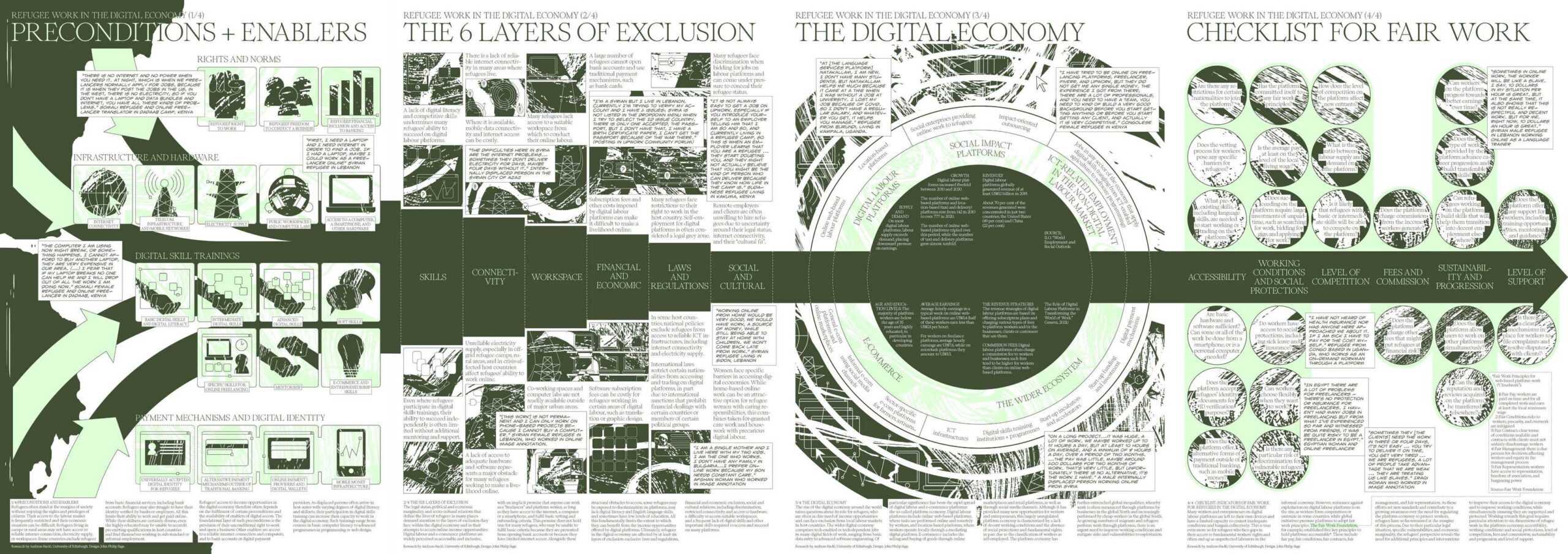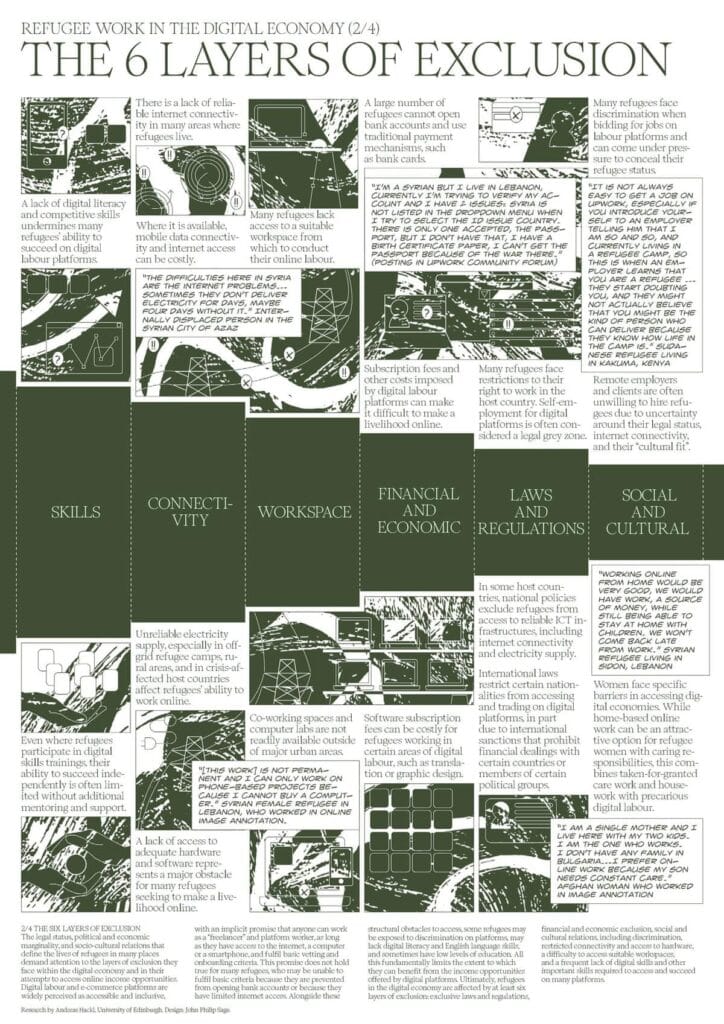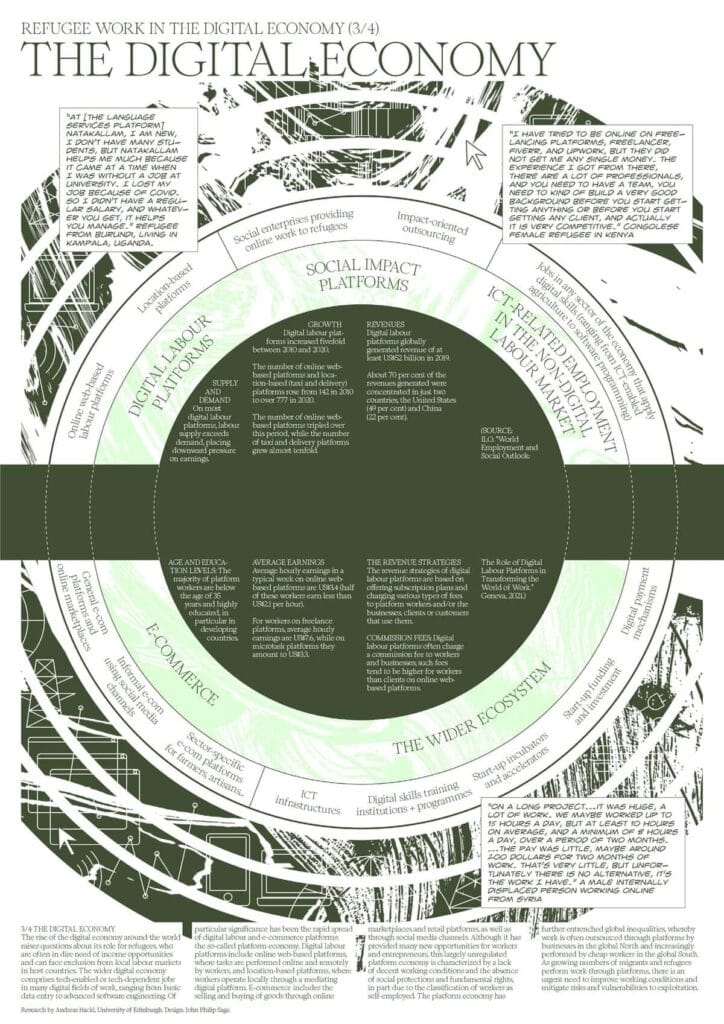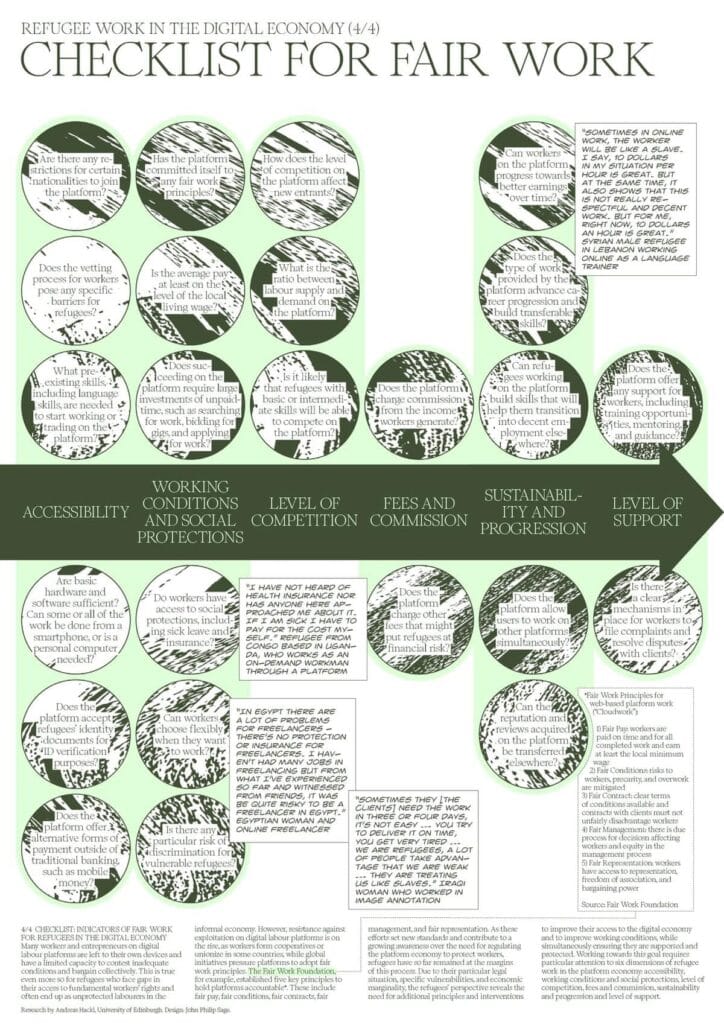This project has been active since 2019 and explored the increasingly important role of digital economies for forcibly displaced people and populations who are affected by humanitarian crises. Led by Andreas Hackl, the project started with an ESRC funded New Investigator Grant and then also included consultancy research work with the Mastercard Foundation, the International Labour Organisation and the UN Refugee Agency.
Recent publications from this project include:
Hackl, A. and W. Najdi (2023). “Online work as humanitarian relief? The promise and limitations of digital livelihoods for Syrian refugees and Lebanese youth during times of crisis.” Environment and Planning A: Economy and Space 0(0).
Hackl. A 2023. “Connecting without Protecting: Intermediating the Internet Economy in Digital Livelihoods Provision for Refugees.” Journal of Humanitarian Affairs 4(3): 13-21.
Easton-Calabria, E. and A. Hackl. 2023. “Refugees in the Digital Economy: The Future of Work among the Forcibly Displaced.” Journal of Humanitarian Affairs 4(3): 1-12.
Hackl, A. 2021. Digital refugee livelihoods and decent work: Towards inclusion in a fairer digital economy. International Labour Organization, Geneva.
Hackl, A. 2021. Towards decent work for young refugees and host communities in the digital platform economy in Africa: Kenya, Uganda, Egypt, International Labour Organization, Geneva.
Rushworth, Philip, and Andreas Hackl. 2021. “Writing Code, Decoding Culture: Digital Skills and the Promise of a Fast Lane to Decent Work among Refugees and Migrants in Berlin.” Journal of Ethnic and Migration Studies.
Infographics










